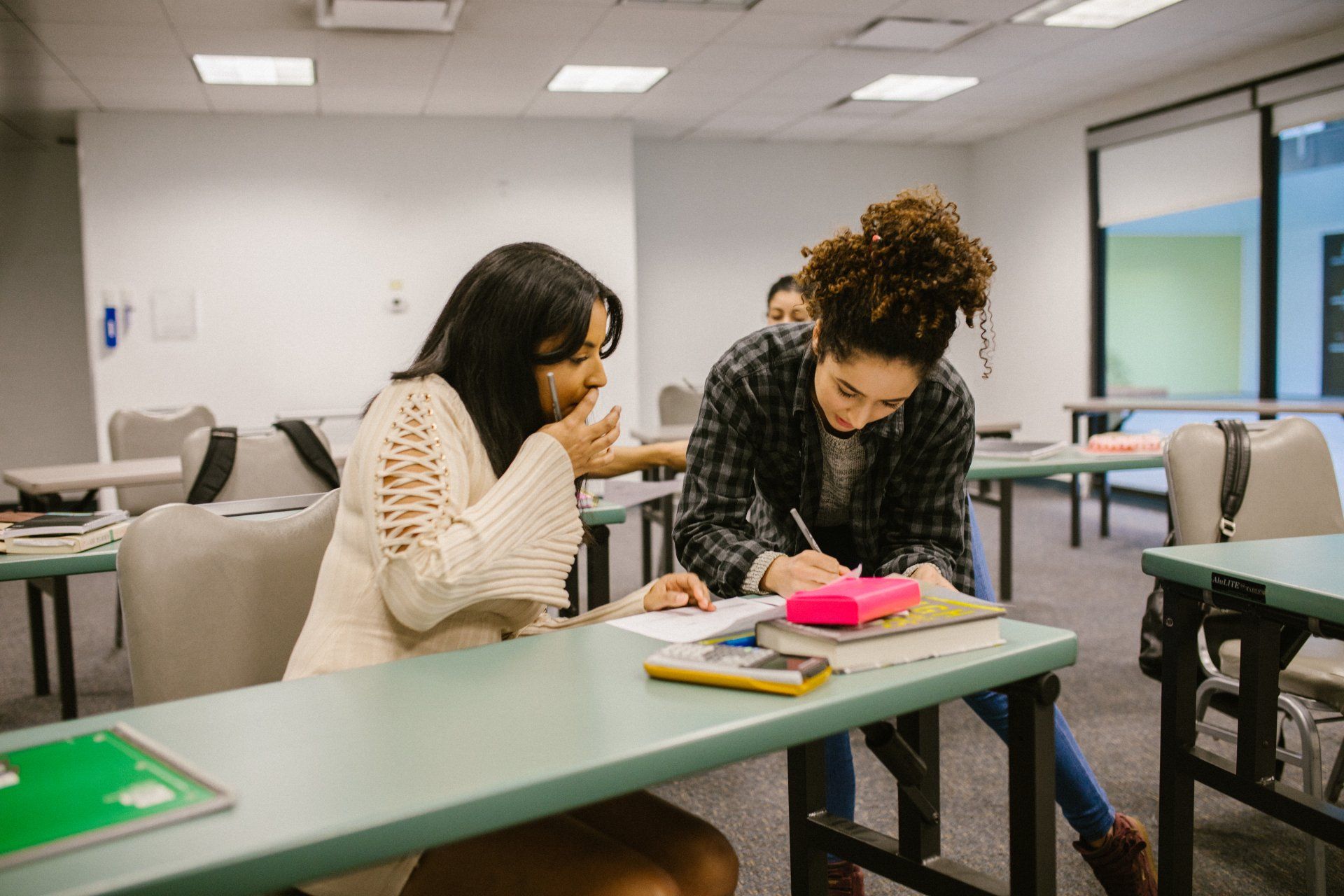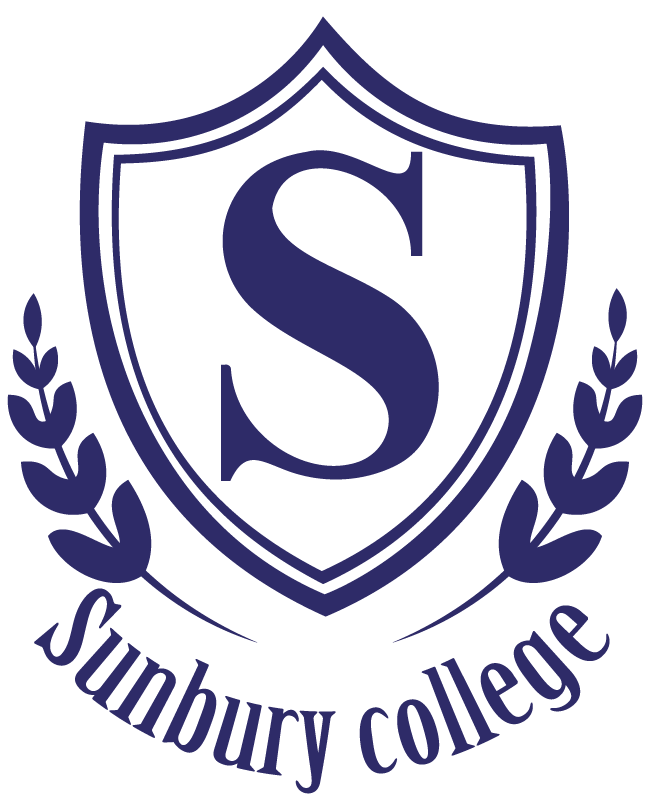SCIENCE, MATHEMATICS & ENGINEERING
Inspire your future in science, engineering, or medicine with expert-led A-Level pathways.

A-LEVELS AT SUNBURY COLLEGE
A-Levels (Advanced Level qualifications) are internationally recognised academic courses, typically studied between the ages of 16 and 19. They provide in-depth subject knowledge and are a key stepping stone to university, professional qualifications, or advanced career pathways.
At Sunbury, we recognise that A-Levels are more than just a requirement — they’re a powerful opportunity to specialise, grow intellectually, and shape your future. Whether you're aiming for a UK university, an international foundation programme, or simply want to strengthen your academic profile, A-Levels can open the door.
Didn’t get the grades you hoped for the first time? Or ready to take a new path? We’re here to help. Our flexible online programme allows you to study at your own pace, with full support from expert British teachers.
Delivered through our accredited affiliate partners, our A-Level pathway prepares you for the next stage — whether that’s higher education, further training, or career success. Choose the subjects that align with your goals, and we’ll help you get there.

SHAPE YOUR FUTURE WITH A-LEVELS
Your A-Level subject choices play a critical role in determining your next step — whether that’s university, a foundation programme, or your chosen profession.
Selecting subjects that reflect your strengths and ambitions will give you the best chance of success and open doors to competitive courses and careers.
Our expert advisers are here to help you navigate your options and make confident, informed decisions about your future.

PROGRAM REQUIREMENTS
At Sunbury College, we believe in second chances and supporting motivated learners. While A-Level success is often built on strong GCSE performance, we also recognise that grades don't tell the whole story.
Our typical entry guidelines are:
At least five GCSEs at grades 4–9, including English and Mathematics
A grade 5 or above in any subject you wish to study at A-Level
Students with slightly lower grades may be accepted on a case-by-case basis, but are advised to retake key GCSEs to keep university options open
Important:
Some universities and careers require specific GCSE grades in English, Maths, and Science.
We’re happy to guide you on how to keep your future options open — even if that means resitting a subject.
Explore Our A Level Subject Options
Study what matters most to your future — with full support and zero application fees.
Choose from a range of A-Level subjects designed to deepen your academic knowledge and prepare you for university, foundation programmes, or your chosen career path.
-
Mathematics
A Level Mathematics is one of the most respected and versatile qualifications you can choose. Highly valued by universities and employers alike, it builds essential skills in logical reasoning, problem-solving, and analytical thinking — all of which are vital for success in a wide range of fields.
Whether you're aiming for a degree in engineering, economics, physics, data science, or business, or simply want to strengthen your academic foundation, studying A Level Maths will set you apart. It demonstrates resilience, intellectual curiosity, and the ability to think critically, making it an ideal choice for ambitious students looking to stand out.
At Sunbury College, our A Level Maths programme is designed to support you every step of the way, from mastering core principles to applying them in real-world contexts.
-
Further Mathematics
A Level Further Mathematics is an advanced qualification designed for students who have a real passion for mathematics and want to take their understanding to the next level. It explores more complex and abstract areas of mathematics beyond the standard A Level course — including topics like matrices, complex numbers, proof, and advanced calculus.
If you're considering a degree in mathematics, physics, engineering, computer science, or economics at a top university, Further Maths can be a game-changer. It strengthens your problem-solving skills, deepens your mathematical intuition, and gives you a significant advantage in competitive degree programmes and career paths.
At Sunbury College, our Further Mathematics course is delivered by expert instructors and tailored to help you
-
Chemistry
A Level Chemistry is a fascinating and rigorous course that explores the structure of matter, the principles of chemical reactions, and the molecular foundations of the world around us. From atomic theory to organic synthesis, this subject helps students develop a deep understanding of both theoretical concepts and practical laboratory skills.
Chemistry is essential for students aiming to pursue careers in medicine, pharmacy, chemical engineering, biochemistry, veterinary science, or environmental science. It teaches precision, analytical thinking, and scientific reasoning — all of which are valued in both academia and industry.
At Sunbury College, A Level Chemistry is taught by experienced subject specialists who guide students through a dynamic curriculum designed to stretch your abilities and inspire curiosity about how chemistry shapes the modern world. Whether you're aiming for a top-tier university or simply want to understand the building blocks of life, this course provides the foundation you need.
-
Physics
A Level Physics delves into the fundamental principles that govern the universe — from the tiniest subatomic particles to the vast mechanics of galaxies. This course builds strong analytical and problem-solving skills by exploring topics such as forces, motion, energy, electricity, waves, quantum phenomena, and modern physics.
It is ideal for students aiming for careers in engineering, data science, architecture, computer science, or aerospace. Physics is also highly valued for its intellectual rigor, logical reasoning, and mathematical application.
At Sunbury College, our A Level Physics programme combines clear theoretical instruction with practical investigation to help students grasp complex concepts with confidence and precision. You’ll learn to think critically, test hypotheses, and engage deeply with the scientific method.
-
Biology
A Level Biology is the study of life itself — from the inner workings of cells and genetic material to the complexity of ecosystems and human anatomy. It explores how living organisms function, evolve, and interact with one another and their environments.
This subject is essential for those pursuing medicine, veterinary science, biotechnology, psychology, or environmental conservation. Biology nurtures scientific reasoning, analytical skills, and an appreciation of how science shapes society and health.
At Sunbury College, our Biology course is enriched with practical investigations, research opportunities, and interactive learning. You’ll gain a robust foundation in both theoretical and applied biological science, equipping you for further education or a career in the life sciences.
-
Psychology
A Level Psychology offers an insightful journey into the human mind and behaviour. It examines key topics such as memory, attachment, mental health, social influence, and biological psychology, supported by research and scientific methods.
Ideal for students interested in human behaviour, mental health, education, or social sciences, this course builds critical analysis, statistical understanding, and essay writing skills, making it a versatile subject for university applications.
At Sunbury College, Psychology is delivered through engaging discussions, case studies, and evidence-based learning. It’s a compelling option for students eager to explore why we think, feel, and behave the way we do — and how this knowledge can be applied in real-world contexts.
